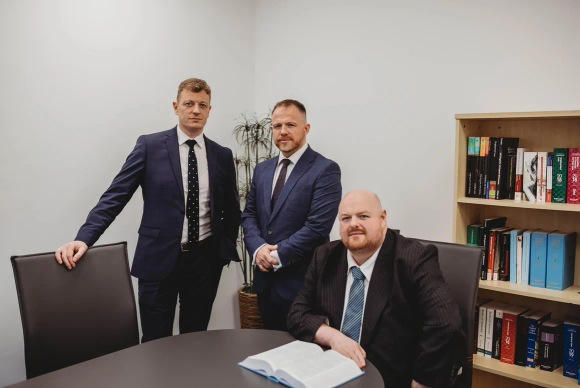Allegations of theft from an employer can have serious consequences beyond the criminal process. Even before any conviction, most employers treat theft as gross misconduct, which usually results in immediate dismissal. This can leave you without income, references, or the ability to explain the situation to future employers.
If the case leads to a conviction, the impact can be even greater. A theft-related offence creates a criminal record, which must often be declared on job applications and can appear on Disclosure and Barring Service (DBS) checks. For professionals in regulated industries - such as finance, healthcare, education, or security - a conviction may also affect your ability to hold a licence or continue working in your field.
The reputational damage can be distressing. Accusations of dishonesty can harm your personal relationships, career prospects, and standing in the community. However, these outcomes are not inevitable. With the right legal advice, many clients manage to protect their reputation and avoid a criminal conviction altogether. We have successfully defended many clients facing Theft From Employer charges. Schedule your free 30 minute legal consult with us today.
Frequently Asked Questions
Is theft from an employer a criminal offence?
Yes - theft from an employer is a criminal offence under UK law. When an employee dishonestly appropriates property belonging to their employer with the intention of permanently depriving them of it, this falls within the definition of theft under the Theft Act 1968. The courts treat it very seriously because it often involves a breach of trust.
What is the sentence for theft from an employer in the UK?
The maximum sentence for theft is up to seven years’ imprisonment under the Theft Act 1968 for offences prosecuted on indictment. The exact sentence depends on factors such as the value of the property, the nature of the offence, and aggravating or mitigating circumstances.
Can you go to prison for stealing from your employer?
Yes you can go to prison for stealing from your employer. Whether custody is imposed depends on factors like the amount taken, the role of the accused, breach of trust, and evidence of planning or concealment. For many first-time or lower-value offences, the court may impose a community order or suspended sentence instead.
What happens if it’s my first offence?
If you have no previous convictions, the court may show more leniency. Early admission of guilt, repayment of the loss, cooperation with the investigation and a good character record can all help. While prison is possible, first-time offenders often face non-custodial sentences if the offence is less serious.
What should I do if my employer accuses me of theft?
If your employer accuses you of theft, take immediate action:
- Do not attend a police interview without legal representation.
- Ask for details of the allegation in writing and review any internal investigation documents.
- Preserve evidence such as emails, records of expenses, receipts, and time in role.
- Contact a specialist criminal defence solicitor who understands workplace-theft cases.
Early intervention can prevent escalation into criminal proceedings.
Can I be sacked without proof?
Yes, but it depends on the employer following a fair and lawful process. Theft in the workplace usually constitutes gross misconduct, which is a valid ground for summary dismissal. However, the employer must carry out a proper investigation and give you the opportunity to respond. Failure to do so may open a claim for unfair dismissal.
What counts as evidence of theft at work?
Evidence in workplace theft cases may include:
- CCTV footage or surveillance of the alleged act.
- Internal audit or stock records showing discrepancies.
- Expense claims, fuel-card usage, or credit-card transactions.
- Emails, messages or documents showing intent or unauthorised use.
- Witness statements from colleagues, managers or loss-prevention staff.
A strong defence examines whether this evidence has been lawfully gathered, whether the chain of custody is intact, and whether your rights were respected during interviews (under the Police and Criminal Evidence Act 1984).
How We Can Help You
Allegations of workplace theft can put your job, freedom, and future at risk. They can affect your reputation, income, and family life - even before any court proceedings take place. At MMA Law, we understand how distressing these situations can be. Our experienced theft from employer solicitors act quickly to protect your rights, defend your position, and help you achieve the best possible outcome.
We provide 24/7 legal representation during police interviews, ensuring your account is clearly heard and your rights are fully protected. Our team will examine every piece of evidence - from financial records and CCTV footage to witness statements - to identify weaknesses in the prosecution’s case. Where appropriate, we’ll negotiate directly with the Crown Prosecution Service (CPS) to reduce or even prevent charges from proceeding.
If your case reaches court, our solicitors are highly skilled in preparing strong defences and mitigation statements. We’ll present your circumstances clearly and persuasively, highlighting any factors that could reduce sentencing or demonstrate your good character.
MMA Law are based in Middlesbrough and we provide legal representation to clients across England and Wales, offering discreet, non-judgemental support throughout every stage of the process. We treat each case with professionalism and empathy, focusing on securing your future and restoring your peace of mind.
Contact MMA Law today for immediate, expert legal advice and a free, confidential 30-minute legal consultation.
Learn more about our related services:




